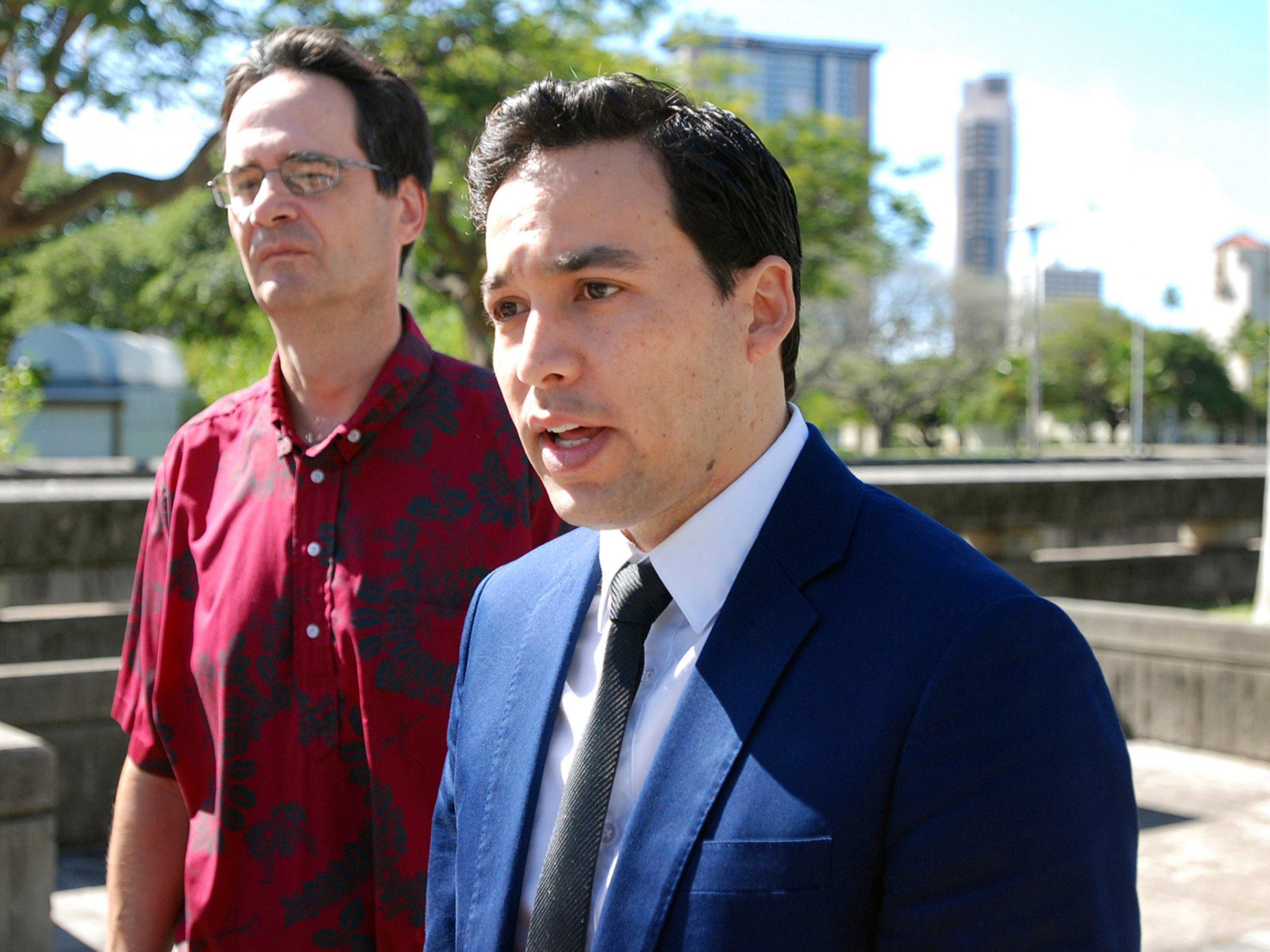Hawaii just became the first US state to support a universal basic income
Representative Chris Lee is the brains behind a new measure designed to guarantee economic security for residents of the island state

Your support helps us to tell the story
From reproductive rights to climate change to Big Tech, The Independent is on the ground when the story is developing. Whether it's investigating the financials of Elon Musk's pro-Trump PAC or producing our latest documentary, 'The A Word', which shines a light on the American women fighting for reproductive rights, we know how important it is to parse out the facts from the messaging.
At such a critical moment in US history, we need reporters on the ground. Your donation allows us to keep sending journalists to speak to both sides of the story.
The Independent is trusted by Americans across the entire political spectrum. And unlike many other quality news outlets, we choose not to lock Americans out of our reporting and analysis with paywalls. We believe quality journalism should be available to everyone, paid for by those who can afford it.
Your support makes all the difference.Hawaii made waves in June when it passed the first piece of legislation aimed at exploring a niche but growing form of wealth distribution.
The bill, HCR 89, directs the government “to convene a basic economic security working group,” a request that can be seen as the first tangible step toward a US basic income program.
People who receive basic income get a fixed amount of money that they can use however they want.
Early research has shown that people typically don't spend this money on vices or vacations; instead, they use it to pay for things like home repairs, school expenses, and the costs of starting new businesses.
Few US politicians have mentioned or pursued policies related to basic income. But thanks to Chris Lee, the democratic representative who proposed Hawaii's measure, the state could become the first to run a government-sponsored basic income experiment on US soil.
Lee says basic income is one of a few approaches he'll pursue to ensure all Hawaiians have economic security, particularly as automation threatens jobs in the state's service-based economy.
“I think it's pretty clear that we have the ability to reduce costs for everyone and keep people out of poverty and improve quality of life more cheaply than it would be to let our existing social safety net be overwhelmed by the changes we're seeing in our economy,” Lee told Business Insider.
After first hearing about basic income on Reddit “some years ago,” Lee said he became intrigued by the idea of paying people a salary just for being alive. He especially thought about that idea in the context of a shifting American Dream.
“Pursuing hard work enough to make a decent living no longer applies in an economy in which automation and innovation have taken that away from so many people,” he said.
The new measure will call on Hawaiian researchers to gather data on different forms of social-security benefits, including the earned-income tax credit, which functions as a tax refund for poor, working families. If the data come back in favor of trialing basic income, Lee said the state could look into a proper study.
Lee, like many tech-minded economists around the world, doesn't think time is on the side of working people. A 2013 Oxford report, for instance, found that robots could replace 50% of all jobs sometime in the mid-2020s. Most of those jobs are expected to be low-skill roles, such as food service, customer service, retail, and other task-based work.
“We're on a clock,” Lee said. “We're feeling it right now, and surely we'll be feeling it significantly more so in the future.”
HCR 89 follows a number of other social-forward measures enacted in Hawaii. The state granted women legal abortions in 1970, predating Roe v. Wade. In 1972, it became the first state to ratify the Equal Rights Amendment. And in 1974, it became the first to mandate employer-sponsored healthcare with the Hawaii Prepaid Healthcare Act.
“I think we have a long history of taking action because it benefits everybody here,” Lee said. “And I hope we have an opportunity to try out some of these new options that have never been tried before, because the benefits could be enormous.”
• The biggest hit album of the year you were born
• This resume for Elon Musk proves you never need more than one page
• The best thing single people can do for themselves if they want to date again
Read the original article on Business Insider UK. © 2016. Follow Business Insider UK on Twitter.
Join our commenting forum
Join thought-provoking conversations, follow other Independent readers and see their replies
Comments